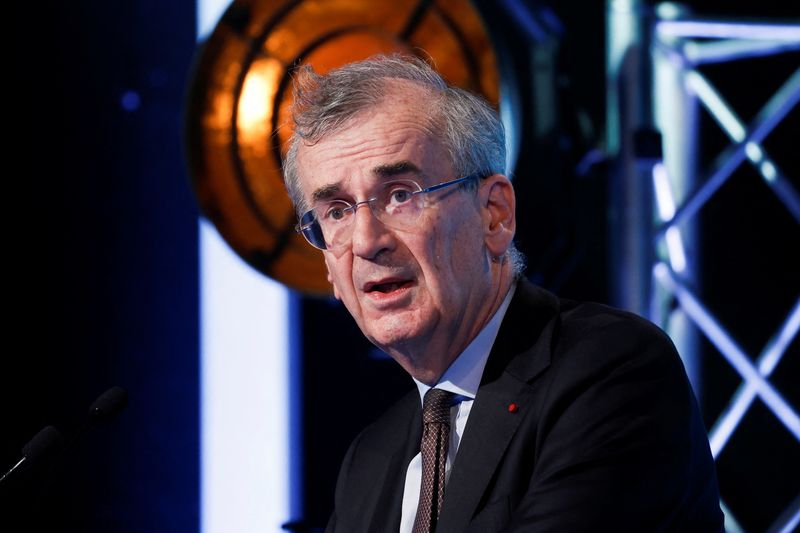WASHINGTON (Reuters) - Europe's energy subsidies may reduce the current rate of inflation but only at the expense of future higher readings, potentially complicating the task of monetary policy, European Central Bank (ECB) policymaker Francois Villeroy de Galhau said on Saturday.
Fearing that high energy prices sap household purchasing power, governments are now rolling out copious support and some have already warned that excessive spending could bring fiscal and monetary policy into conflict as one is easing while the other is tightening.
"We should not be under the illusion that price caps reduce underlying inflation," Villeroy said in Washington on Saturday, addressing a meeting of the G30, a group of private and public financial officials.
"They may only help to reduce the risk of second round effects," he added. "Price caps, if temporary, only reduce current measured inflation at the expense of future measured inflation."

The ECB has been tightening policy quickly this year and Villeroy argued that governments should also play their part by reestablishing fiscal discipline because the fiscal and monetary policies are misaligned.
Instead of broader spending increases which add to already high inflation pressures, governments should focus help on those in the greatest need of help, Villeroy argued.